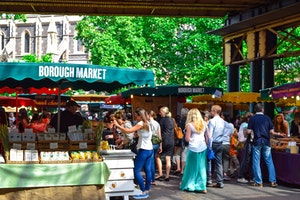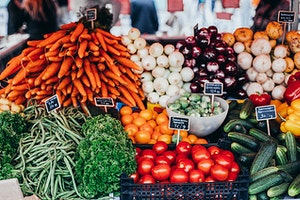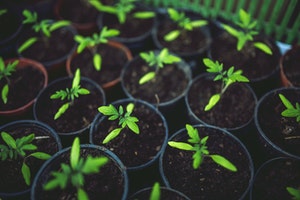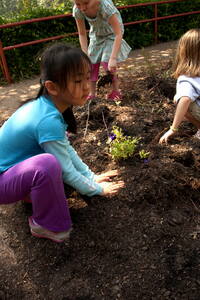During my first student teaching placement at G. J. Mann Elementary School in Niagara Falls, NY, I proposed an idea for a collaborative community involvement project to help improve access to fresh, affordable, and nutritious food options. The proposal called for a farmers market and multidisciplinary agricultural unit that could be woven into the District’s curriculum across all grades.
The Situation
The City of Niagara Falls is largely considered to be a food desert — lacking access to fresh, affordable, and nutritious food options. Most food markets that exist in the City of Niagara Falls are typically more than a mile away for many residents. A lack of transportation can be a barrier for residents. Roughly 15% of Niagara Falls’ most vulnerable citizens are considered to be in urgent need for food (Healthy Food Healthy People Work Group, 2018).
Event Proposal
The LaSalle neighborhood near the elementary school lacks neighborhood food market options. I proposed a farmer’s market that would take place during the second Sunday of each month at the St. John De LaSalle Church parking lot from May through October. The event would feature fresh, affordable produce from local farmers and food producers. Local restaurants would be invited to host workshops, offer samples, and recipes for basic meals, using seasonal produce found at the market. Local partners and sponsors would be sought to subsidize educational materials for the District as well as the monthly event. We would need to collaborate with the Parish and City government for the use of space and applicable permits. Donations would be sought for baskets and giveaways featuring gardening equipment, produce, and locally produced foods.




Educational Impact
The event the event could generate economic impact, raise civic engagement, foster a sense of community pride and good citizenship, and create a wealth of educational opportunities for students. A unit on agriculture could be woven into the district curriculum across all grades and subjects where appropriate (e.g., science, math, social studies / ELA). Students could experiment with growing seeds in the classroom, measure growth, tend to outdoor school garden spaces, learn about where their food comes from, and build food preparation skills. The events could provide culturally relevant education on economic and health benefits of eating local, the basics of gardening with what is available, and composting.
Reference:
Healthy Food Healthy People Work Group. (2018, October 18). Niagara Falls local food action plan. Creating a Healthier Niagara Falls Collaborative.